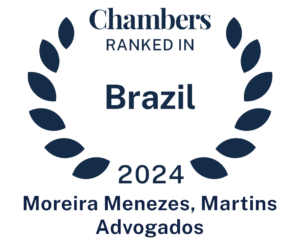O Poder de Controle nas Companhias em Recuperação Judicial. Mauricio Moreira Menezes. Rio de Janeiro: Forense, 2012, 311 p.
The book addresses the power of shareholder control and its repercussions in situations in which the controlled company is in crisis, either immediately preceding the filing of the judicial reorganization, or during the development of the procedure.
Therefore, the analysis focuses on the problems related to two different fields of study, both included in the domain of private property relations, embodied in Corporate Law and in the “Corporate Crisis Law”. In this sense, the advent of Law n. 11,101/2005 opened a vast field for research on the issues of Corporate Law connected to the procedures provided for in that law, especially pertaining to power relations in companies undergoing judicial reorganization.
Based on this premise, the examination of such problems is conducted to identify solutions that are aligned with the values and principles established in the Constitution of the Federative Republic of Brazil and, naturally, are economically viable, so that, eventually, such solutions prove to be strengthened and convincing both in terms of their ethical essence and in terms of their economic feasibility.
As the book proposes to deal with the particulars of the controlling power in companies in recovery and, also, with the mechanics of the exercise of power, its organization took into account two fundamental axes for the development of reasoning: (i) the first, related to the examination of the control power structure, comprehending the elements that it consists of; (ii) the second, projected in the functional aspect of the controlling power, encompasses the dynamics of its prerogatives and the corresponding duties and responsibilities.
Regardless of the author’s opinion, expressed in the book’s conclusions, the arguments structured throughout the examination are crucial for the reader to be convinced whether it is possible to defend a theory of corporate control power specific to the scenario created by the effects of the judicial reorganization, which is sufficient to differentiate it from the controlling power exercised during the ordinary conduction of the company’s business.




